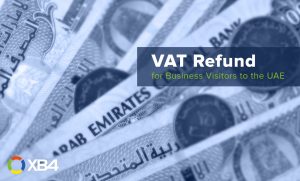
Corporate income tax (CT) is a tax levied on the profits of businesses. It is a common form of taxation in many countries, including the UAE. The UAE government introduced a federal CT system in 2023, with a standard tax rate of 9% for taxable profits above AED 375,000.
CT is important for businesses in the UAE because it provides a stable and predictable source of revenue for the government. This revenue can fund essential services, such as education, healthcare, and infrastructure and diversify the Government’s income. CT can also help to level the playing field between businesses, as all businesses are subject to the same tax rate.
The UAE Government has introduced the CT at a 9% tax rate for taxable profits above AED 375,000. It continues to make some important updates in line with the OECD’s international Taxation developments of BEPS and other relevant areas, such as the online trade, as well as to the areas of business governance and compliances areas in the UAE, ncluding and not limited to the Ultimate Beneficial Owner (UBO), Anti-Money Laundering (AML), Economic Substance Regulations (ESR), and working with other tax jurisdictions on the compliances enhancement in the areas of CRS and FATCA as well as introducing various explanations and clarifications of taxable profits and deductible expenses on various areas through Cabinet and Ministerial Decisions and the Federal Tax Authority (FTA) clarifications. These updates are designed to ensure that CT is fair and efficient to businesses and taxpayers in the UAE.
This article will discuss the basics of CT in the UAE, including tax rates, taxable entities, and deductible expenses. We will also discuss how to calculate CT, the different types of CT in the UAE, and the latest updates to CT. Finally, we will discuss the benefits of CT for the UAE economy.
We hope this article will provide a comprehensive overview of CT in the UAE. If you have any questions, please do not hesitate to contact us.
The basics of CT in the UAE
Tax rates
The UAE federal CT system has a standard tax rate of 9% for taxable profits above AED 375,000. Taxable profits below AED 375,000 are exempt from tax.
Taxable entities
The following entities are subject to CT in the UAE:
- Companies incorporated in the UAE
- Branches of foreign companies
- Partnerships
- Sole proprietorships
Deductible expenses
The following expenses are deductible for CT purposes in the UAE:
- COGS (Cost of goods sold)
- Selling and administrative expenses
- Depreciation and amortization
- Interest expense
- Charitable donations
- Losses from previous years
Calculating CT
CT is calculated by applying the tax rates to the taxable profits of a business. The taxable profits are calculated by subtracting the deductible expenses from the gross profits.
The tax rates for CT in the UAE are as follows:
- Taxable profits below AED 375,000: 0%
- Taxable profits above AED 375,000: 9%
To calculate CT, you would first need to calculate your gross profits. This is the total amount of income that your business has earned before any expenses have been deducted. Once you have calculated your gross profits, you would then need to subtract all of your deductible expenses. This will give you your taxable profits. Finally, you would need to apply the tax rates to your taxable profits to determine the amount of CT that you owe.
Here is an example of how to calculate CT:
- Gross profits: AED 1,000,000
- Deductible expenses: AED 500,000
- Taxable profits: AED 500,000
- Tax rate: 9%
- CT owed: AED 45,000
As you can see, the calculation of CT is relatively straightforward. However, it is important to keep accurate records of your income and expenses to calculate your CT accurately.
Here are some additional things to keep in mind when calculating CT:
- The tax rates for CT may change over time.
- The deductible expenses for CT may also change over time.
- You may need to adjust your CT calculations if you have any special circumstances, such as losses from previous years.
If you are unsure about how to calculate CT, you should consult with a qualified accountant; we are here to help.
The different types of CT in the UAE
There are three main types of CT in the UAE:
- Federal CT: This is the CT that is levied by the federal government. It is the most common type of CT in the UAE.
- Emirate-level CT: This is the CT that is levied by the individual emirates. Not all emirates have emirates-level CT.
- Withholding tax: This is the tax withheld by the payer of certain payments to a non-resident entity. Withholding tax is not technically a form of CT, but it is often discussed in conjunction with CT.
The latest update to CT in the UAE
The UAE government has made a number of updates to CT in recent months since its introduction. These updates include:
- The introduction of a 9% tax rate for taxable profits above AED 375,000: This is a significant change in taxation in the UAE by introducing direct taxation on corporate and businesses. It was introduced in 2023 and is currently the only tax rate for federal CT.
- Definition of taxable profits: The definition of taxable profits has been confirmed to include a number of new items, such as intangible assets and capital gains.
- Deductible expenses: The list of deductible expenses has been announced to exclude a number of items, such as entertainment expenses and fines.
- Penalties for late filing: The penalties for late filing of CT returns have been increased.
These updates are designed to ensure that CT is fair and efficient. They also make it easier for businesses to comply with CT requirements.
How to file CT returns in the UAE
To file a CT return in the UAE, you will need to do the following:
- Register with the Federal Tax Authority (FTA): If you are not already registered with the FTA, you will need to do so before you can file a CT return. You can register online or by visiting a FTA office.
- Obtain a CT registration number: Once you are registered with the FTA, you will be assigned a CT registration number. This number will be used to identify your business when you file your CT returns.
- Gather your financial information: You will need to gather your financial information for the relevant financial year before you can file your CT return. This information includes your income, expenses, and assets.
- Complete the CT return form: The FTA provides a CT return form that you can use to file your return. You can download the form from the FTA website or pick up a copy at an FTA office.
- Sign and submit your CT return: Once you have completed the CT return form, you will need to sign it and submit it to the FTA. You can submit your return online or by mail.
The filing deadlines for CT returns in the UAE are as follows:
- Annual returns: Annual returns must be filed by the end of the ninth month after the tax year-end.
- Provisional returns: Provisional returns must be filed by the end of the thirty days of the relevant event, i.e., ceasing operation of the business.
If you fail to file your CT returns on time, you may be subject to penalties. The penalties for late filing of CT returns vary depending on the severity of the offence.
Here are some additional tips for filing CT returns in the UAE:
- Planning: It is important to start the filing process early to avoid any last-minute rush.
- Gather your information: Ensure you have all your financial information gathered before you start filing your return.
- Check the FTA website: The FTA website has much helpful information about CT returns, including the latest filing deadlines and penalties.
- Use a qualified accountant: If you are uncomfortable filing your own CT return, you can hire a qualified tax accountant to help you.
The benefits of CT for the UAE economy
CT can have a number of benefits for the UAE economy. These benefits include:
- A stable and predictable source of revenue: CT can provide a stable and predictable source of revenue for the government. This revenue can be used to fund essential services, such as education, healthcare, and infrastructure.
- A level playing field: CT can help to level the playing field between businesses. All businesses are subject to the same tax rate, which can help to prevent unfair competition.
- Investment: CT can encourage businesses to invest in the UAE. Businesses that invest in the UAE will be able to claim tax deductions for their investments. This can make it more attractive for businesses to invest in the UAE.
- Economic growth: CT can help to boost economic growth. The revenue from CT can be used to fund infrastructure projects, which can create jobs and boost economic growth.
In addition to these benefits, CT can also help to improve the UAE’s credit rating. A good credit rating can make it easier for the UAE to borrow money, which can be used to fund further economic development.
Overall, CT can have a number of positive benefits for the UAE economy. By providing a stable and predictable source of revenue, leveling the playing field between businesses, encouraging investment, and boosting economic growth, CT can help to make the UAE a more attractive place to do business.
Other additional benefits of CT for the UAE economy:
- Increased government spending: The revenue from CT can be used to fund government spending on essential services, such as education, healthcare, and infrastructure. This can improve the quality of life for UAE citizens and residents.
- Reduced inequality: CT can help to reduce inequality by taxing the profits of businesses and wealthy individuals. This can help to redistribute wealth and create a more equitable society.
- Increased transparency: CT can help to increase transparency in the UAE economy. Businesses will be required to disclose their profits and expenses, which can help to make the economy more transparent and accountable.
Overall, CT can have a number of positive benefits for the UAE economy. It can provide a stable and predictable source of revenue, level the playing field between businesses, encourage investment, boost economic growth, improve the quality of life for citizens and residents, reduce inequality, and increase transparency.
Foreign Entities and Branches
It is worth noting that the introduction of the UAE CT at a competitive rate which is considered a lower CT rate than many other countries, would, in fact, encourage rather than discourage foreign businesses and companies to invest in the UAE. This would be accomplished by foreign entities and branches electing to be taxed in the UAE instead of being taxed in their residence tax jurisdiction and paying lower CT rates by taking advantage of Double Tax Treaties between their country of residence and the UAE as the country of source.
Conclusion
CT is a new tax in the UAE, but it is an important one. Businesses need to understand how CT affects them and how they can comply with it. By understanding CT, businesses can ensure that they are paying the correct amount of tax and that they are not at a competitive disadvantage.


























































